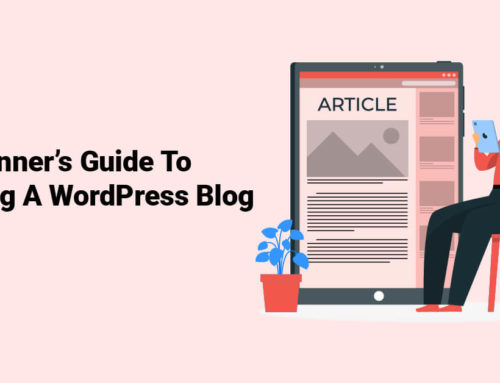
It’s likely that when you were creating your website, you worked very hard to make it look nice. Nothing could be worse than having to take it down because of legal reasons. When creating a website, it is important to factor in all of the legal pages that should be included.
Each website should include a privacy policy, copyright notice, disclaimer, and disclosure statement. Terms and conditions, refund policies, and any required references to your site builder may also be required, depending on the site’s purpose.
Some policies may vary depending on the state/country you live in, so be sure to pay special attention to the specific requirements within your location. There are a lot of pages that can be made for your website, and we have highlighted the must-haves to keep your website legal!
Privacy policy
Every website legally requires a privacy policy because you are requesting personal information for the customer. On this page, you share how you will use the information that the customer inputs. This will also help customers build trust with your business.
Because you share information about why you collect the info that you do, you will build a stronger relationship with them. The privacy policy gives your business great value and credibility. This page is required by Federal Law. You are also required to have compliance with the GDPR and CCPA (General Data Protection Regulation and California Consumer Privacy Act).
A technical support engineer and information security analyst shared, “Very few people actually read the privacy pages. But they are good to have for legal reasons for your company. And you have to do ‘due diligence to ensure that you are protecting the data.” If your site has good, detailed, terms of service then your website will have more legal protection than others.
Outside of legal reasons for having your privacy policy on your website, it is probably wise to consider the people who give you business. Just like you would not like someone stealing your information without you knowing it, your customers deserve that same respect. Having customers that feel safe using your website is going to help your business grow as they will come back and may even refer a friend to you in the future.

Privacy laws are different depending on where you live and so it is important to know what kind of policies are in place there. One example is found in the state of California where they have the California Consumer Privacy Act that requires that businesses delete information if it is requested by the customer (source). Unfortunately this law currently only protects residents of the state of California, but you can probably see how this would be important information for you to know if you were conducting business in California. Your state likely has some kind of laws regarding data privacy and it would be well worth it for you to research that before creating legal pages.
Cookie Policy
The Cookies policy is very important to share with your users because this is where they give you consent to track their data. This is another legal requirement that you must include on your website.
Your cookie policy should explain why certain data is being collected. An option to opt-out if they do not give their consent to this policy should also be provided here. In many cases, a notification about cookies will pop up as soon as someone clicks on your page. This gives them a chance to understand what will happen on this site, as well as give them the freedom to continue or go back.
Disclaimer Page
The disclaimer should state your liabilities for the product or service that you are providing. It is good to offer a list of limitations or risks that your product may have here.
This page will also include disclosure statements, where you share the products that you are suggesting for them. This is where you will share any information about third parties you are involved with. If you have any type of sponsorship for your business, you should provide that information as well.
Copyright Notice

Providing a copyright symbol along with the date and name of your company will give you the rights to everything that you have created and published on your website.
In other words, your copyright policy will inform anyone who wants to use your information, that they must give you credit because you have ownership over everything you create on your website. It is protection given through US law that you were the original publisher and owner of each item included on your website.
You can see an example of a copyright notice from the footer of my website here:

Along with protecting your online content, you can also publish information about trademarks and patents to protect you from your product idea being stolen. You worked hard to develop a product or service that people want and of course, you don’t want to do all that work just so that someone can claim it as their own. Putting in the time to create a copyright page including all the necessary information can save you a lot of heartache.
Why Are These Pages Important?
Adding legal pages to your website is extremely important because they protect both you and the people who visit your website. In this sometimes crazy world, you want to be able to create your content without having to worry about facing lawsuits everywhere you turn. Having notices on your page protects your rights and means that you will not be responsible for the actions of the people visiting the website.
Just like on the roads, there are laws regarding what is allowed on the internet. Things like data privacy information, cookie policy, disclaimers, and copyright information can help the people visiting your site feel safer knowing exactly what they are getting themselves into by clicking on a link to your website. These will also protect you and help you know what the boundaries are so that you can provide your web visitors with the experience that you promised them when they opened the site.
Below is a video I found that describes the importance of having legal pages and what kind you should have.
Why Do We Need These Legal Pages?
As mentioned above, providing your visitors with things like privacy data, cookie information, disclaimers, and copyright will allow you to avoid many of the mistakes that can make or break your website. (source) Imagine the following scenarios:
- You are scrolling through the internet and you see a clothing website that looks exactly like the one you created.
- People followed what you told them to do on your website and they face bodily harm.
- You use information from your website to determine what products to keep and which ones to stop selling, but visitors get angry upon discovering that you are using their information.
- You put a cookie on visitor’s computers so that you can see what other items they shop for, but customers get agitated about not being warned and not getting the option to opt-out.
These are all examples of things that can happen to you when running a website. I don’t know about you, but I don’t want to be the person on either side of any of the scenarios above. If you don’t warn your visitors about the things above, you may be on the receiving end of a lawsuit. Even if you get away from the lawsuit without any consequences you will likely pay thousands of dollars in lawyer and court fees. That all could have been prevented by taking the time to make these legal pages on your website.
Although it will take some more time, it is worth that extra effort to avoid getting into trouble. Even outside of the legal ramifications, it is likely that you truly care about your customers as they allow you to do what you love. You don’t want them to feel tricked into anything and if they have a good experience on your website, then they are likely to come back.
Other Useful Pages
 Terms and Conditions
Terms and Conditions
Something that is highly recommended to include within your privacy policy is your Terms and Conditions.
By providing your customers with this information you can state the governing laws for the state that your business is in.
You are listing the terms that you want your customers to comply with when using your website services.
Return and Refund Policy
You can also include a return and refund policy page. In this section, you can state the stance that your business takes on returns and refunds. Clearly explain the policy, terms, conditions, and rules on this page.
This can help greatly in those situations where there was some kind of misunderstanding about someone trying to return something that couldn’t be returned. If a customer contacts you about returning something that they can’t, it is much easier to refer them to a page already on your website than it is to inform them of some rule they didn’t know about before buying your product.
Comment Policy
This is another part that may be included within your terms and conditions. You can explain how comments will be regulated and why comments may be deleted. Keep in mind that you should never discriminate against anyone.
This is a growing issue in the world of social media. Many companies are receiving negative feedback as a result of people’s comments being censored. You obviously don’t want this to happen to you, but you likely also want your website to be a safe place where people can ask questions and share their thoughts. If you have a page laying out exactly the type of comments on your page then there will be no confusion when it comes to comments that are allowed or not. An important thing as well is to be consistent about how you enforce your policies since people may get mad and it would be much easier to show them that there are no exceptions.
The United States department of labor has a great example of a comment policy on their website that may give you some ideas about how to format this page on your own website.
GDPR
The Cookiebot provides a great statement explaining the General Data Protection Regulation terms:
“The EU law on personal data, the General Data Protection Regulation (GDPR), gives website visitors the right to receive specific, up-to-date information on what data is registered about them at all times, for what purpose, and where in the world it is sent (along with the possibility to prevent it from happening).”
It is crucial to make sure that your website complies with the terms of the GDPR. It ultimately protects any user in the EU. There are hefty penalties and fines that your website can be charged for if you do not comply with the GDPR terms.
This is another great example of knowing what the rules are in your community. Even though this regulation currently only applies in the EU, it is smart to consider what your regulations are so that you do not get hit with legal penalties from the government.
CCPA
The California Consumer Privacy Act is similar to the GDPR in terms of giving Californians the right to have their data protected. They can have any of their information deleted and have the right to know exactly what is being done with the information that they give to your website.
You must be aware of these terms because you could be charged various fines if your website does not meet the CCPA standards.
COPPA
The Children’s Online Privacy Protection Act is a United States federal law that protects children under the age of 13 years old from having their information collected without permission from a parent or guardian. (source) The law states that website operators must have this information in their privacy policy and provide a verifiable way for parents to offer consent. (source)
Many social media websites do not allow persons under the age of 13 to even use their service, because of the complicated laws regarding what you can do with their information. This may also be something for you to consider if children are not a part of your target audience. If children are your main audience, you may want to consider the regulations that need to be followed.






Leave A Comment
You must be logged in to post a comment.